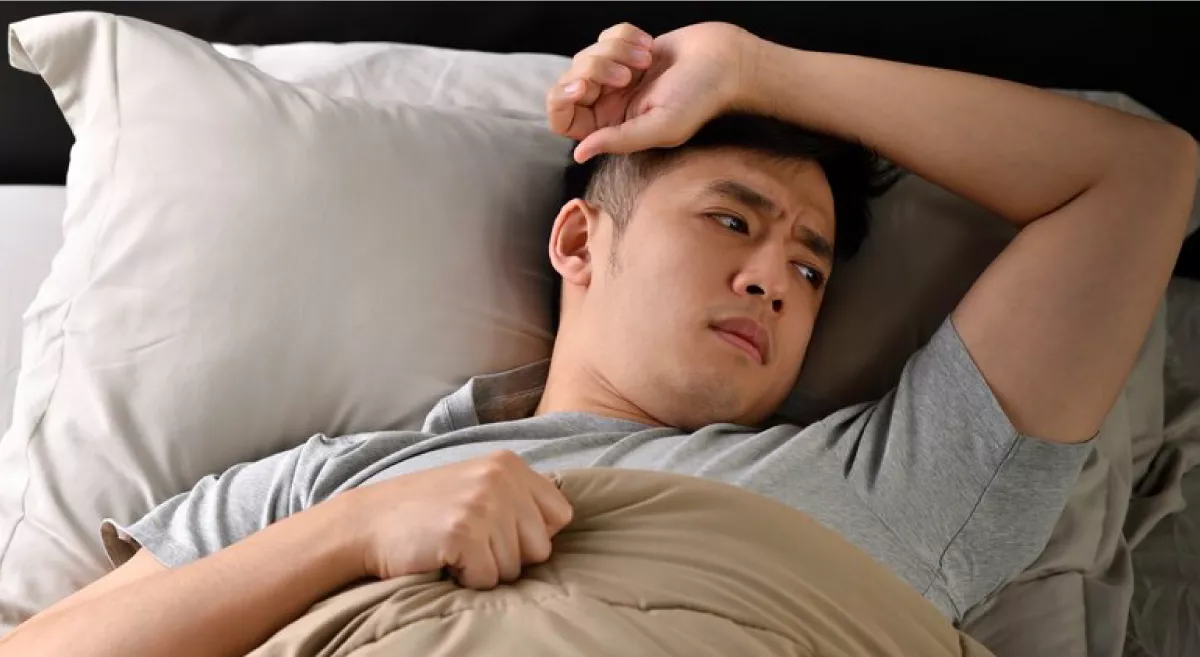Sleep Study Bangalore Helps You track Your Sleep for Better Wellness
Just How a Sleep Research Can Transform Your Sleep Patterns: Insights and Providers Available
A sleep research works as an essential tool for people seeking to comprehend and improve their sleep patterns. It supplies a complete analysis of sleep actions and potential conditions. By evaluating different metrics, medical care professionals can determine underlying concerns that disrupt restorative remainder. This procedure not only aids in medical diagnosis but also establishes the phase for customized treatment strategies. What understandings might a rest study expose concerning your own rest behaviors?
Understanding Sleep Researches: What to Expect
They frequently question what the experience will certainly entail when individuals prepare for a rest research. These studies, usually performed in a sleep facility, aim to monitor numerous physiological specifications during rest. Upon arrival, individuals are welcomed by experienced specialists who assist them with the procedure. The atmosphere is made to be comfy, permitting for an all-natural rest experience. Individuals might be asked to fill in questionnaires regarding their sleep practices and case history, which helps in the analysis.
As the evening proceeds, sensing units are affixed to the body to track mind waves, heart price, and breathing patterns. While the setup may feel uncommon, the goal is to collect exact information on the person's rest patterns. The whole treatment is non-invasive and postures no risk to the participant. Eventually, the information gathered throughout the sleep research study is crucial for detecting prospective sleep conditions and creating reliable therapy strategies.
Typical Sleep Disorders Determined Through Rest Studies
Sleep researches play a necessary function in identifying numerous sleep disorders that can greatly influence an individual's health and health. Typical disorders detected with these studies consist of obstructive sleep apnea, characterized by duplicated interruptions in breathing throughout sleep, bring about fragmented sleep patterns. Another common condition is sleep problems, which includes difficulty dropping or staying asleep, commonly resulting in daytime exhaustion and impaired functioning. Uneasy legs syndrome (RLS) is also often observed, causing awkward feelings in the legs and an unmanageable urge to move them during the night. Narcolepsy, a neurological problem that affects sleep-wake cycles, is an additional major problem identified in sleep researches, causing excessive daytime drowsiness and sudden sleep attacks. Parasomnias, which incorporate uncommon behaviors during rest, such as sleepwalking or evening horrors, are also noted. Early identification of these problems can promote timely intervention and enhance general rest top quality.
The Refine of a Rest Study: From Preparation to Results
The procedure of a rest research might appear daunting, it is a systematic and structured approach developed to gather vital info regarding an individual's sleep patterns. A medical care copyright performs a complete examination, talking about sleep history and signs and symptoms with the individual. This evaluation helps determine the details emphasis of the study.
Preparation commonly includes guidelines on rest health and medicine adjustments before the research study. Clients may be advised to stay clear of caffeine and alcohol to guarantee exact outcomes. On the night of the study, sensing units and electrodes are put to keep track of brain task, heart rate, breathing, and movements throughout rest.
The data collected is carefully evaluated by sleep professionals, that determine any abnormalities or patterns a measure of sleep problems. Following this analysis, a follow-up appointment is set up to talk about the searchings for and prospective treatment choices tailored to the individual's needs, assisting in improved sleep high quality.

Kinds Of Rest Studies: In-Lab vs. Home Sleep Tests
Two key types of sleep researches exist: in-lab studies and home sleep tests, each dealing with various demands and situations. In-lab researches generally take place in a rest clinic where people are kept an eye on overnight by medical care professionals. This approach enables comprehensive information collection on various rest parameters, such as mind activity, oxygen degrees, and heart rate. Individuals are frequently attached to multiple sensing units, providing in-depth insights into their rest conditions, consisting of sleep apnea and narcolepsy.
On the other hand, home sleep tests supply a much more hassle-free option for people who prefer to perform assessments in their very own environment. These portable devices check important metrics like air movement, oxygen saturation, and snoring. While home examinations are less complete than in-lab studies, they serve as a functional remedy for diagnosing common rest disorders. Eventually, the selection in between these two sorts of sleep researches relies on individual preferences, medical requirements, and the extent of sleep-related issues.
Interpreting Your Sleep Research Study Outcomes: Secret Metrics Clarified
Understanding the results of a sleep research study is crucial for patients seeking insights into their sleep health and wellness. Secret metrics typically evaluated in sleep studies include the Apnea-Hypopnea Index (AHI), which determines the number of apneas and hypopneas per hour of sleep. AHI values help identify the seriousness of sleep apnea, with higher scores suggesting a lot more considerable problems. One more vital metric is the complete bedtime (TST), which mirrors the total period of rest during the study. Rest effectiveness, the proportion of time spent asleep to time spent in bed, is likewise vital; greater portions indicate much better rest top quality. In addition, the portion of sleep spent in different stages-- light, deep, and REM-- offers insights right into rest style. Comprehending these metrics gears up clients with the knowledge required to discuss their rest patterns with health care service providers, leading the way for educated choices concerning their rest health and wellness.
Treatment Choices and Recommendations Based Upon Your Sleep Research study
When a rest research exposes issues such as rest apnea or other sleep problems, numerous therapy choices and recommendations appear to improve total sleep health. For obstructive rest apnea, constant favorable respiratory tract pressure (CPAP) treatment is frequently suggested, supplying a constant stream of air to keep airways open throughout rest. Conversely, oral devices may be suggested for moderate to modest instances, repositioning the jaw to avoid air passage obstruction.
In situations of sleeping disorders, cognitive behavior modification for insomnia (CBT-I) is often recommended, concentrating on behavioral modifications and assumed patterns that disrupt rest. Furthermore, way of living modifications such as fat burning, regular workout, and preventing alcohol or high levels of caffeine prior to bedtime might boost rest quality.

Building Healthy And Balanced Rest Habits: Tips for Better Rest
Building healthy sleep behaviors is crucial for accomplishing corrective rest. Establishing a constant rest routine, limiting screen time prior to bed, and creating a comfortable sleep setting can considerably enhance rest quality. These approaches serve as foundational steps for people looking for much better sleep results.
Develop a Rest Routine
Developing a constant rest regimen is vital for advertising healthy rest practices and boosting overall health. Sleep Study Bangalore. A routine rest schedule, where people go to bed and awaken at the very same time each day, enhances the body's natural circadian rhythms. This predictability helps control the sleep-wake cycle, go to my site causing boosted sleep top quality. Creating a calming pre-sleep routine, such as analysis or exercising relaxation techniques, can signal the body that it is time to unwind. Furthermore, enhancing the sleep setting-- by keeping a comfortable temperature, lowering sound, and making sure darkness-- can further support relaxed sleep. By focusing on these techniques, people can grow a sustainable rest regimen that promotes restorative rest and adds to much better physical and psychological health
Limit Screen Time
As people increasingly rely upon displays for enjoyment and interaction, restricting screen time before bed has come to be important for promoting far better sleep. Research shows that direct exposure to blue light given off by devices such as mobile phones, computers, and tablet computers can disrupt the manufacturing of melatonin, the hormone in charge of managing sleep. Consequently, specialists suggest transforming off displays a minimum of one hour prior to bedtime to improve rest high quality. Involving in alternate tasks, such as practicing or reviewing a book leisure techniques, can aid individuals loosen up and prepare for sleep. By knowingly reducing screen time, people can grow much healthier rest patterns, resulting in enhanced general well-being and boosted daytime performance. Prioritizing this element of rest health is important for long-term health and wellness.
Develop a Sleep Shelter
Developing a sleep haven can significantly enhance an individual's capacity to achieve peaceful rest. This environment must prioritize convenience and harmony, integrating elements that promote relaxation. An ideal cushion and pillows are crucial, as they straight influence sleep high quality. Additionally, the area should be dark, quiet, and cool; utilizing power outage drapes and white sound equipments can facilitate this atmosphere. Individualizing the space with soothing shades and fragrances, such as lavender, can even more improve relaxation. Minimizing mess additionally contributes to a serene environment, allowing for psychological quality - Sleep Study Bangalore. By attentively making a sleep sanctuary, people can cultivate much healthier sleep routines and develop a constant routine, inevitably resulting in boosted general wellness and restorative rest
Regularly Asked Questions
Just how Lengthy Does It Take to See Improvements After a Sleep Study?
Improvements Visit Website after a sleep study can vary, yet several people start to observe positive changes within a few weeks. Constant follow-up and adherence to suggested treatments play vital roles in achieving suitable results.

Can Children Undergo Rest Studies, and How Are They Different?
Yes, youngsters can go through sleep research studies, which differ from adult studies in keeping track of techniques and devices. Pediatric evaluations commonly entail child-friendly environments and may include parent involvement to assure convenience and exact outcomes.
Are Sleep Researches Covered by Insurance Policy, and What Are the Expenses?
Sleep research studies can be covered by insurance, depending upon the policy and medical necessity. Costs differ widely, ranging from $300 to $3,000, influenced by the kind of study and place of the facility.
What Way Of Living Modifications Can Enhance the Efficiency of Sleep Research Study Outcomes?

Implementing regular rest routines, reducing high levels of caffeine intake, developing a relaxing bedtime regimen, and maintaining a comfy sleep environment can considerably boost the performance of sleep research study results, promoting better rest high quality and overall health.
Just how Commonly Should I Repeat a Sleep Study for Ongoing Issues?
People experiencing continuous sleep issues need to think about repeating a sleep research study each to 2 years, or as recommended by health care specialists, to keep track of adjustments and adjust therapy strategies efficiently based upon their advancing sleep patterns. (Sleep Study Bangalore)
Sleep researches play a crucial function in recognizing various sleep disorders that can greatly influence a person's health and well-being. Typical problems discovered via these researches include obstructive sleep apnea, characterized by repeated disruptions in breathing during rest, leading to fragmented rest patterns. When a rest study exposes issues such as sleep apnea or various other rest problems, numerous therapy options and referrals become offered to boost overall sleep health. Developing a regular rest routine, restricting screen time before bed, and developing a comfy sleep atmosphere can substantially boost rest top quality. Additionally, optimizing the rest setting-- by maintaining a comfortable temperature, reducing sound, and guaranteeing darkness-- can even more sustain restful sleep.